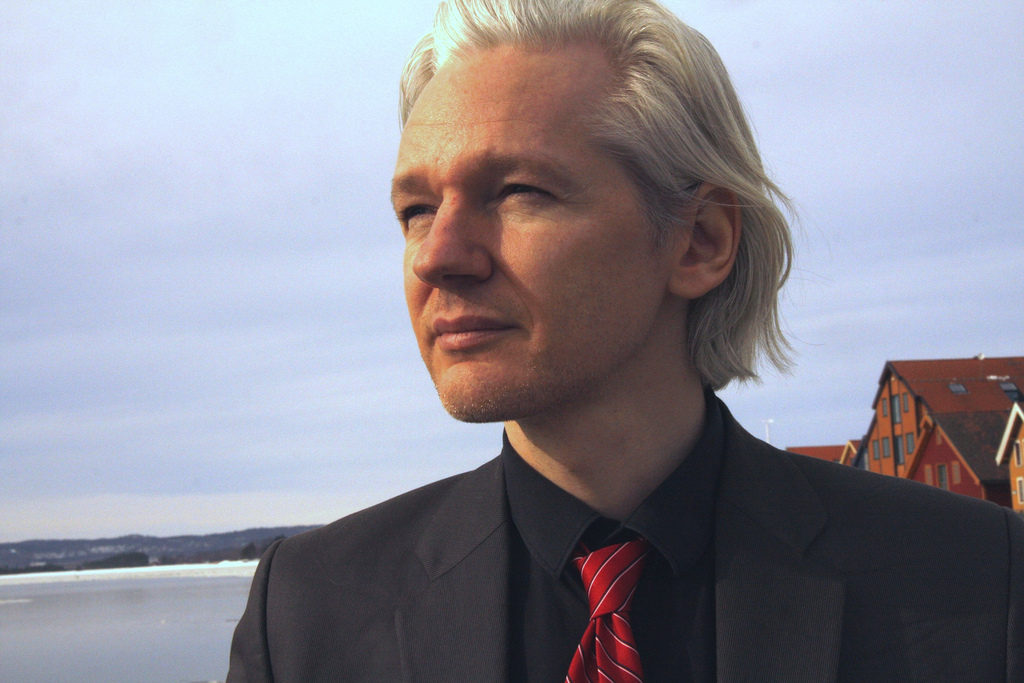Originally published at MintPress News.
LONDON — For three years, WikiLeaks founder Julian Assange has been forced to take refuge at Ecuador’s embassy in London, fearing arrest and eventual extradition to the United States if he ever steps outside.
Four teams of eight police are maintained at all times to ensure Assange does not escape, at a shocking cost to British taxpayers.
Assange took refuge in the embassy in 2012, where he’s remained ever since under de facto imprisonment. At the time he first entered the embassy, Assange faced possible extradition to Sweden, where he was under investigation for four offenses relating to an alleged sexual assault. Assange and his supporters have maintained that the charges are merely a pretense to see him extradited from Sweden to the U.S., where he could be charged in connection with the release of thousands of documents leaked by imprisoned whistleblower Chelsea Manning.
Earlier this year, Assange told Democracy Now! that he has been able to confirm that a federal investigation against him is underway and that charges are pending, but there is little other publicly available information.
The latest information is, in federal court this year, March 4th, the U.S. government again admitted that they are pending prosecution, and they are proceeding. And it is a national security criminal investigation, multi-subject, long-term pre-prosecution. And as a result, the press is not entitled to any information at all. There’s around 500 Freedom of Information requests from different media organizations trying to look at whether the case has been conducted in an illegal manner—spying on our supporters, spying on funding and so on. All of that is restricted under the basis that the matter is pending prosecution.

The cost to keep Assange in the embassy under constant guard has reached almost £12 million (about $17 million), according to a live counter on the website Govtwaste.co.uk. Other figures estimate that, for the same cost to taxpayers, England could have provided almost 10 million meals to the hungry, or provided over 46,000 hospital beds. His time holed up in the embassy has also taken its toll on Assange’s health, since he hasn’t been allowed even the small amounts of outdoor exercise time that most prison inmates would receive.
For years, officials refused to question Assange at the Ecuadorian embassy, insisting he travel to Sweden instead. During the same period, according a Monday report from the UK news agency Press Association, Swedish officials interviewed 44 people on British soil, leading to accusations that Assange is being “singled out” for unfair treatment.
There was some hope for Assange’s freedom earlier this year when, in March, officials finally agreed to interview him at the embassy about the single charge for which he remains under investigation. However,Reuters reported last week that those plans have stalled due to a breakdown in negotiations between Swedish and Ecuadorian diplomats:
Ecuador has demanded Sweden give him asylum as a condition of the meeting, a Swedish official said on Friday.
“You can’t give anyone asylum at another country’s embassy, that’s against international law,” Cecilia Riddselius at the Justice Department said. “If he wants asylum he has to come to Sweden.”
Writing on Democracy Now!’s blog, Amy Goodman and Denis Moynihan documented Goodman’s trip to the embassy to interview Assange in May. She asserted that despite the struggle to maintain his health and the ongoing legal battle, both WikiLeaks and its founder remain strong.
“His skin is pale from years without sunlight, matching his prematurely white hair,” Goodman and Moynihan wrote. “But his resolve is unbroken, and the leaks he originally sought to publish when he founded WikiLeaks almost 10 years ago are still reaching the light of day.”